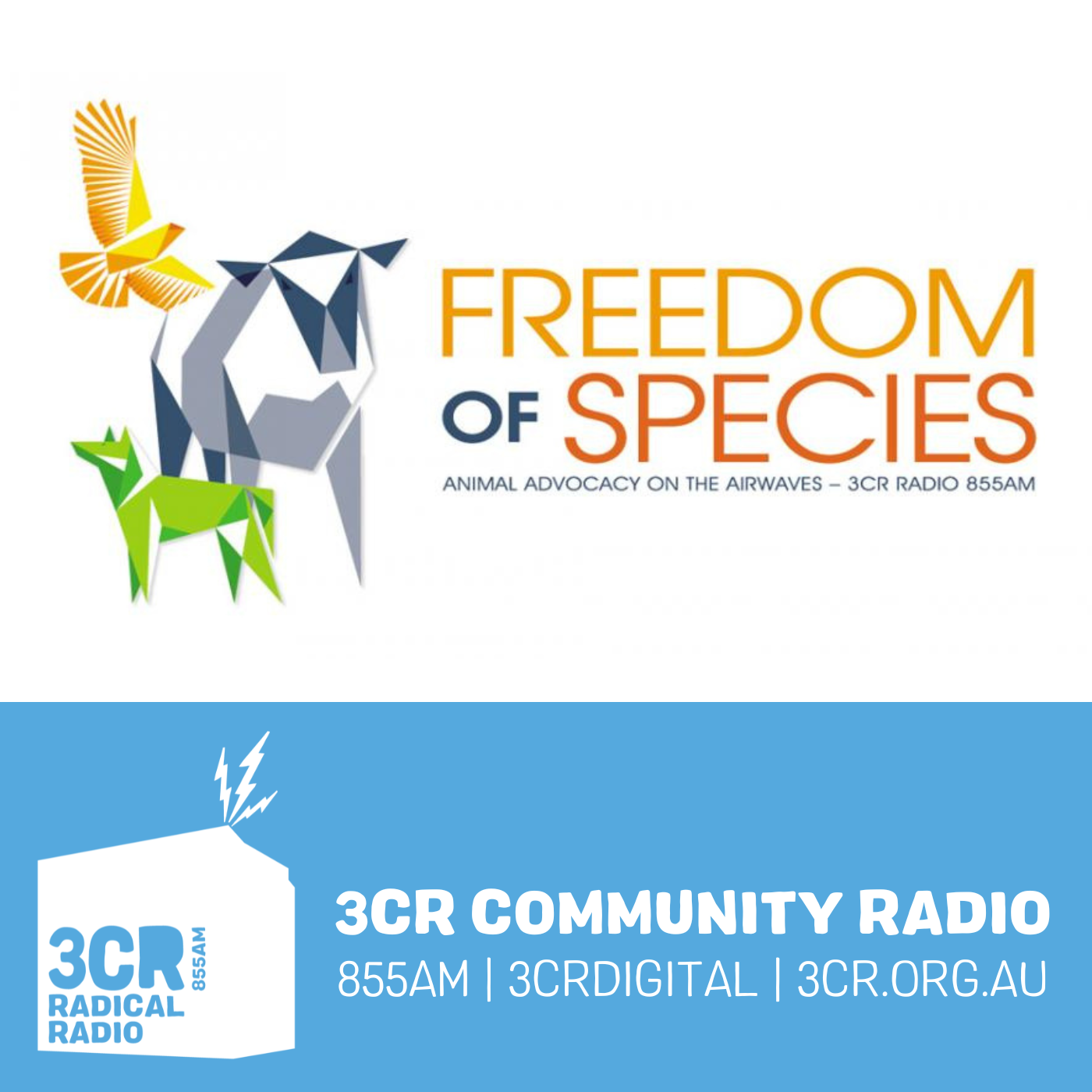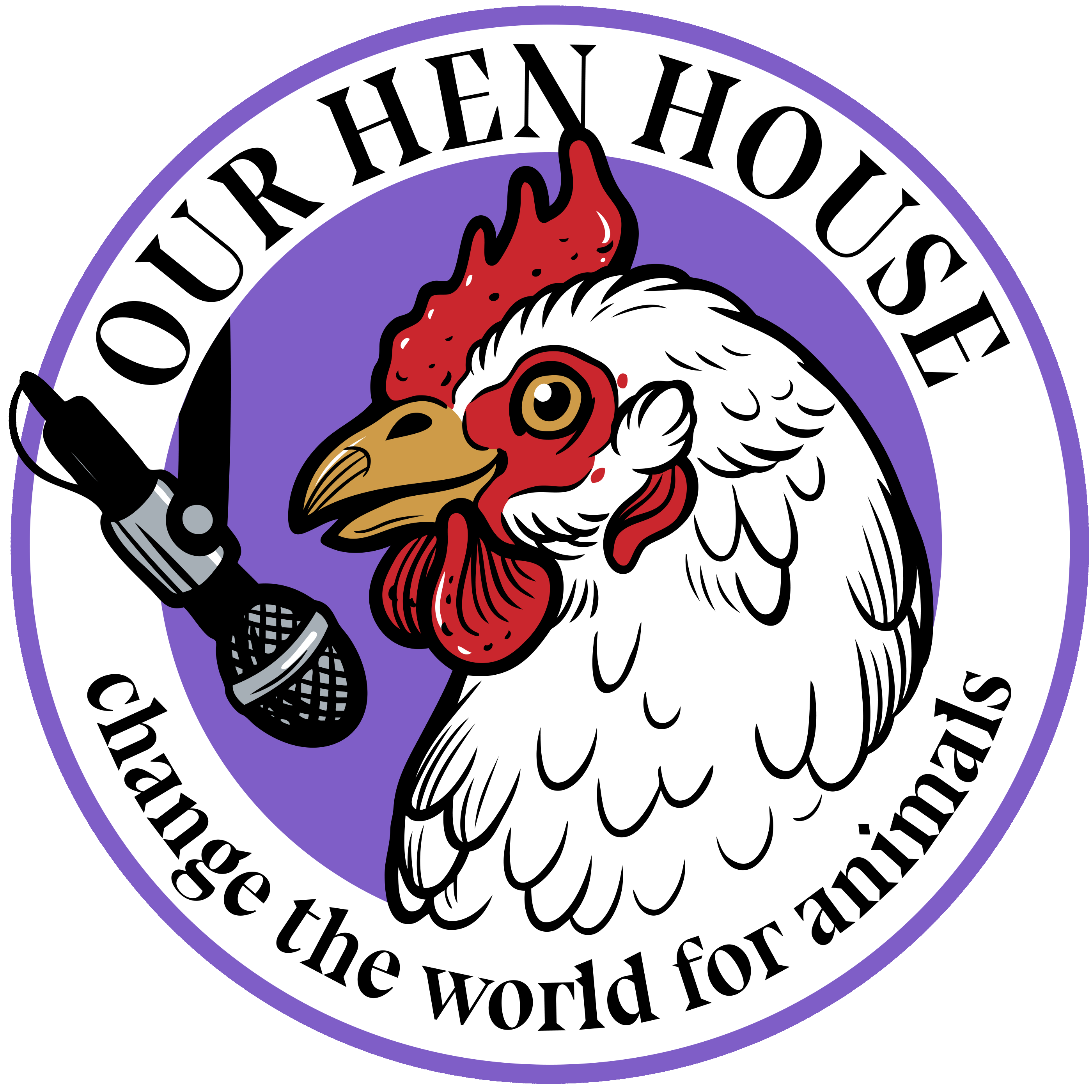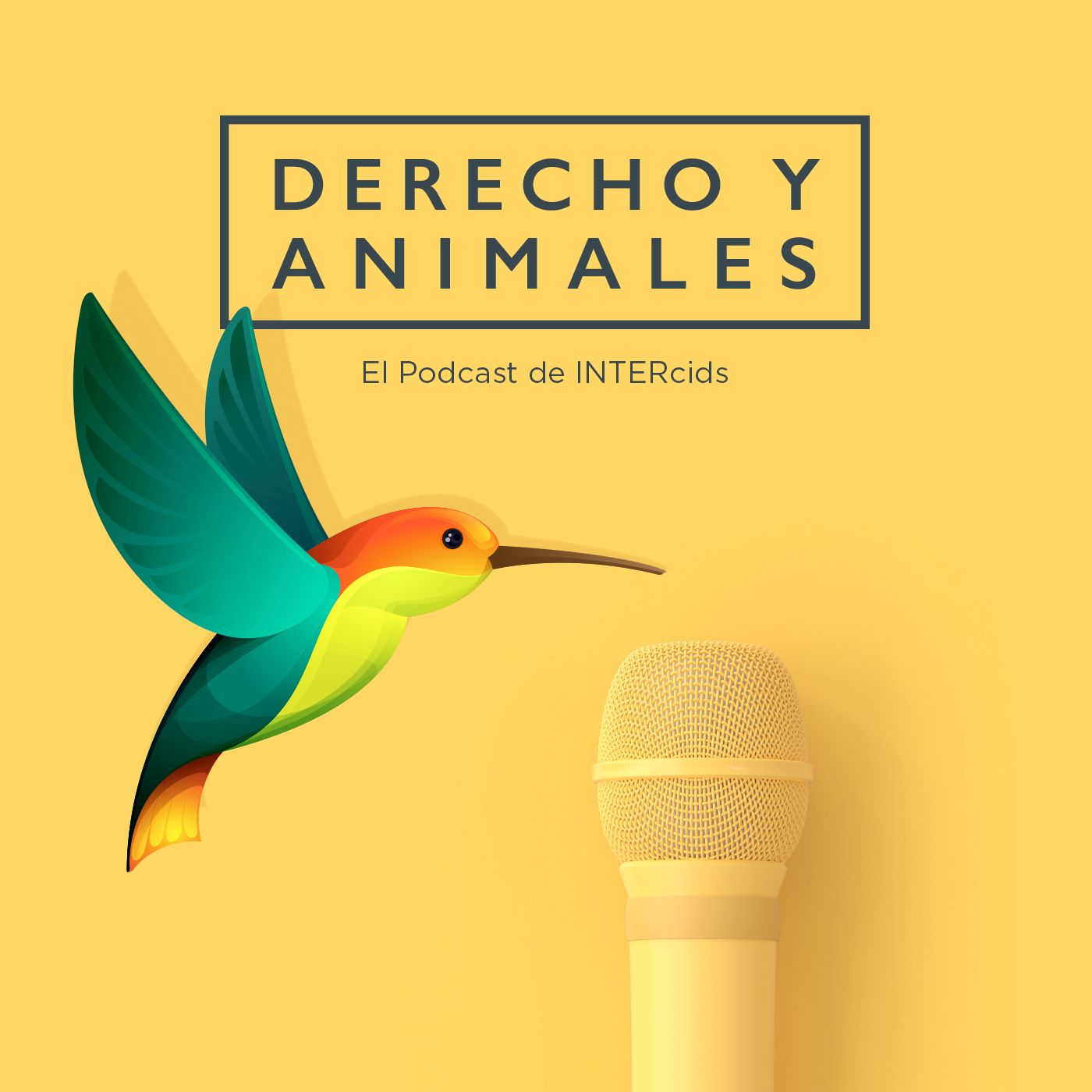
The Animal Turn
Animals are increasingly at the forefront of research questions – Not as shadows to human stories, or as beings we want to understand biologically, or for purely our benefit – but as beings who have histories, stories, and geographies of their own. Each season is set around themes with each episode unpacking a particular animal turn concept and its significance therein. Join Claudia Hirtenfelder as she delves into some of the most important ideas emerging out of this recent turn in scholarship, thinking, and being.
The Animal Turn
S5E7: Politics of Domestication with Chi Mao Wang
In this episode Claudia chats to Chi Mao Wang about “the politics of domestication” which involves talking about the global-agri food industry, the meatification of diets in east Asia, and how this has resulted in increasing biosecurity measures in Taiwan. This leads them to a discussion about the westernization of domestication and the significance of decoupling the eating of meat from ideas of civilization.
Date Recorded: 4 November 2022
Chi-Mao Wang is an Assistant Professor at the Department of Bio-Industry Communication and Development, National Taiwan University. His research interests include food geographies and more-than-human geographies. He is currently undertaking research on animal geographies and food politics in East Asia, with particular attention to the management of animal life through modern scientific knowledge. He is the author of Securing participation in global pork production networks: biosecurity, multispecies entanglements, and the politics of domestication practices. You can find out more about him on his website and connect with him via Twitter (@chimaowang)
Featured:
- Securing participation in global pork production networks: biosecurity, multispecies entanglements, and the politics of domestication practices by Chi Mao Wang
- A food regime genealogy , by Philip McMichael
- Big Farms make Big Flu by Rob Wallace
- Pathological Lives: Disease, Space and Biopolitics by Steve Hinchliffe, Nick Bingham, John Allen, Simon Carter
- Domestication Gone Wild: Politics and Practices of Multispecies Relations edited by Heather Anne Swanson, Marianne Elisabeth Lien, Gro B. Ween
Animal Highlight (Salmon): Amanda contrasts the lives of salmon in farming operations with that of their wild kin. Amanda talks about the biosecurity threats in salm
Animals in Politics, Law, and Ethics researches how we live in interspecies societies and polities.
Biosecurities Research Collective
The Biosecurities and Urban Governance Research brings together scholars interested in biosecurity.
iROAR Network
iROAR brings together podcasts that aim is to make the world a better place for animals.
Disclaimer: This post contains affiliate links. If you make a purchase, I may receive a commission at no extra cost to you.
The Animal Turn is hosted and produced by Claudia Hirtenfelder and is part of the iROAR Network. Learn more on our website.
- Leave a Review on Podchaser
- Check out The Animal Turn Merch.
- Support us on Patreon, Buy Me a Coffee, and Buzzsprout.
00:00 - Introduction
- Just like that we are on S5E7!
- Politics of Domestication
- Securing participation in global pork production networks: biosecurity, multispecies entanglements, and the politics of domestication practices by Chi Mao Wang
02:32 – Welcome
- Born and raised in the Chinese countryside and has an interest in rural development
- When he was young he could visit animal farms but today is much more difficult
- Surprised by how man biosecurity measures there are on Taiwanese farms today
- Taiwan experienced rapid urbanization so now there are very few animals in urban areas
- Government imposes strict biosecurity measures for farmers, so you have to hire biosecurity consultant companies to develop biosecurity measures.
- Cannot sell animals unless you have these biosecurity measures
- Every time he travels home, sees that rural farms are changing and the way we treat animals have changed
10:40 – Meatification
- Concept developed by Philip McMichael – A food regime genealogy
- Before WW2 many people in Japan and East Asia did not eat large eat meat
- China is the biggest meat consumer in the world
- The U.S tried to educate people from Japan and Taiwan that they needed to “eat more healthy” which for them meant more meat
- Eating meat was taboo in Japan, but Japan changed their diet to fit with western dietary ideas.
- The role of scientists and experts in shaping the world
- Not just aspirational desire of Asian consumers but an active campaign by the U.S.
- The U.S looking for a foreign market for their domestic crops of grain
- Taiwain didn’t have feed stuff and antibiotics for a meat market, so they had to import it from the U.S.
- From the 1990s Taiwan was the world’s biggest pork exporter
18:05 – Global Agri-Food Industry
- Meat is jut one among many commodities that are connected in global networks
- Shortage economy during Covid-19
- International division of labour – “Asian countries become manufactures of everything, including meat,” Chia Mao
- Western countries become biggest consumers and markets
- “If you want to know how people are treating animals, you need to trace this global commodity chain,” Chi Mao Wang
- It’s a global phenomenon so you can’t focus on only one country
- Global movement of diseases, pathogens and drugs too
21:44 – Antibiotics and Biosecurity Measures
- Antibiotics are part of biosecurity where farming is very intensive
- Disease outbreak is part of industrial agriculture – perfect disease situation
- Big Farms make Big Flu by Rob Wallace
- Pathological Lives: Disease, Space and Biopolitics by Steve Hinchliffe, Nick Bingham, John Allen, Simon Carter
24:39 – Politics of Domestication (Black Pig Farming in Taiwan)
- Attempt to understand how western farming practices became the dominant and most powerful domestication practices around the world.
- After Foot and Mouth disease biosecurity has become the dominant narrative and this impacts indigenous farming practices (framing them as backward)
- Black pigs have a higher market value in Taiwan and the traditional practices of feeding them was pig swill
- Most western countries ban feeding pigs such swill
- Black pig farmers argue against the narrative that swill is dangerous, but instead say that manufactured feed might be contaminated
- Even though CAFO and black pig farmers fight, they are increasingly similar to each other
- Black pigs take almost twice as long to raise to market weight (16-18 months)
33:56 – CAFO’s in Taiwan
- “Biosecurity measures in Taiwan started in the 1960s when the U.S tried to turn Taiwan into a global meat factory,” Chi Mao
- U.S. teaches small scale farmer how to use antibiotics
- Since 1960, Taiwan became the biggest pork exporter
- Biosecurity gradually accumulated in Taiwan
- From 1997 there were even more biosecurity measures
- Antimicrobial Resistance (AMR) Silent killer
- Over 80% of the world’s antibiotics are used on livestock animals, serious for new and novel diseases
38:00 – Looking to the Future: Developing vs Western countries and the consumption of meat
- Biosecurity issues are sensitive in Taiwan, there is a belief that we need biosecurity to have a powerful pork industry
- “For me, we need to reduce meat consumption. It is the best the way to deal with the problem. Otherwise it just turn Taiwan into a very perfect pig disease situation,” Chia Mao Wang
- Last year there was the first confirmed case of Swine Flu in humans in Taiwan
- China became the biggest market for meat and this is a problem for all of human kind
- We need to re-think our relationship with meat
- It can look hypocritical for western countries to say Asian ones should reduce their meat consumption
- Botswana president criticizes west for outburst on hunting (read more)
- “Big concern that meat consumption is increasing in China but how do we talk about that at the same time as Western countries practices are what got us here in the first place?” Claudia
- Western countries bare the responsibility to reduce meat consumption, but we have to understand why people in developing countries want to eat meat – symbols of civilization
- “We need to decolonize this kind of thought…it does not mean that the more meat you eat you become more civilized,” Chi Mao
- It is a very political issue.
- “We need to create new ideas of what we want to become, what it means to be human, and what kind of world we want tomorrow,” Claudia
- Indigenous knowledge in Japan might be good for decoupling meat and civilization
46:20 – African Swine Fever
- What is African Swine Fever? What does it mean for pigs if they get it?
- It is deadly, “also known as the cancer or pigs,” Chi Mao
- No vaccine
- Virus can survive in meat for a long time
- Virus can survive in human in human nose, mouth, and hair
- Increased surveillance and biosecurity
50:10 – Quote (Heather Anne Swanson, Marianne Elisabeth Lien, Gro B. Ween)
- Domestication Gone Wild: Politics and Practices of Multispecies Relations edited by Heather Anne Swanson, Marianne Elisabeth Lien, Gro B. Ween
- “Through ethnographic attention to domestication assemblages that are marginalized, we can show how multispecies relations become implicated in contexts of colonial expansion, in the making of resource frontiers, and in other efforts associated with progress’. Pay attention to animals, indigenous groups, and historical practices that have brought us here.”
- The title is good because domestication has gone wild, domestication has become so huge, too industrialised.
- Problems for humankind and all sorts of animals
52:00 – Closing up
- Currently working on a project related to disease and very happy to discuss with others
- Contact details in show notes
- Thank yous.
53:00 – Animal Highlight (Salmon)
- First fish focus of the season
- What a fish knows by Jonathan Balcombe
- Almon who escape from farms are often framed a biosecurity hazards
- 2021 New Scientist Article – concern with genetic contamination
- Dominant discourses that treat escapees as biosecurity hazards – different to thinking about agency and liberation
- Fish farming same principle as land agriculture – shocking densities.
- These densities are stressful and sea lice thrive in these conditions
- 10-30% of farmed fishes die before reaching slaughter
- The damage done to Salmon is apparent when you compare it with the migratory lives of wild salmon
- Atlantic Salmon have ranges of over 9,000kms
- They can remember the water chemistry of their route which they use years later to
- Olympian levels of endurance and strength for these migrations
- Have incredible colour changes and can adjust their biochemistry
- Very adaptable and versatile beings
- Dying salmon fish (How farmers turn their Salmon pink)
- Marc Bekoff and Animals and superheroes
- Thank you Amanda Bunten-Walberg
01:04:16 - Thank you and Credits
- Thank you to Animals in Philosophy, Politics, Law and Ethics (A.P.P.L.E) for sponsoring this podcast; the Biosecurities and Urban Governance Research Collective for sponsoring this season; Gordon Clarke (Instagram: @_con_sol_) for the bed music; Jeremy John for the logo; Amanda Bunten-Walberg for the Animal Highlight, and Christiaan Menz for his editing.
Podcasts we love
Check out these other fine podcasts recommended by us, not an algorithm.

The Animal Highlight
Claudia Hirtenfelder
Knowing Animals
Josh Milburn
Species Unite
Species Unite
The Deal With Animals with Marika S. Bell
Marika S. Bell
The Other Animals
Laurent Levy
Beyond Species
Beyond Species
The Anthrozoology Podcast
Anthrozoology Podcast
Freedom of Species
The Freedom of Species Team
Our Hen House: Vegan & Animal Rights Movement | Stories from the Frontlines of Animal Liberation
Jasmin Singer and Mariann Sullivan
Derecho y Animales
Derecho y Animales
Storytelling Animals
Dayton Martindale
Species
mackenmurphy.org
Animal Law Matters
K & R Animal Law
The Humanimal Connection
Humanimal Trust
The Animal That Changed You
Katya Lidsky
Think Like a Vegan
Emilia Leese
The Shifting Lens: Viewing the Animal Experience
Tiamat Warda Rebecca Madrid
The Salmon People
Canada's National Observer
Comme un poisson dans l'eau
Victor Duran-Le Peuch
.png)
.png)


